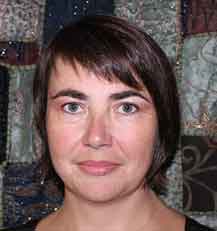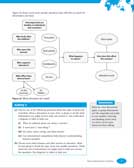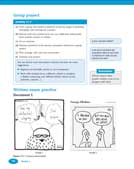Building foundations for TOK: Global Perspectives

When I first came across the Cambridge IGCSE in Global Perspectives a few years ago, I noticed the potential the course offers to develop the higher level skills students need at exactly the right age, embedded in really interesting and relevant global content.
When they step up into IB Theory of Knowledge (TOK), Global Perspectives students have already considered the difference between fact, opinion, justified belief, unfounded speculation, perspectives and value judgements; how far we can trust the information and opinions we find online; and how we can justify what we believe. For these students, the transition to considering what knowledge is –and how it might originate in language, reason, memory and so on – is significantly reduced.
Why is age 14-16 such a crucial time in critical thinking development?
Students aged 14 to 16 years old are going through a crucial period in brain development. At this age, the brain is particularly receptive to the development of higher level skills. Habits of mind that students develop during these years tend to stick. So if we teach 14 to 16-year-old students to question, think, and take independent action, we are creating young adults who will probably continue to question, think and take independent action.
For me, Global Perspectives is vital in beginning to develop students’ skills in thinking, reasoning, research, teamwork, independent work, communication and presentation. It is also excellent in helping students to become active global citizens who are really aware of the needs, concerns and perspectives of others. As a result, students who have studied for the Cambridge IGCSE in Global Perspectives are ready for the demands of advanced study, including IB TOK.
Try some activities
To help support your students, I have taken a structured, cyclical approach in these areas in Global Perspectives for Cambridge IGCSE that increase in complexity. The five sections contain skills development activities and practical research and project work activities, across twenty engaging themes.
For example, try Activity 4 from the first section of the book, which you will find on page 4 of these sample pages. This guides students through the thought process of choosing search terms online and considering causes and consequences in simple, familiar situations.
Following a gradual progression of activities, by the final section students are expected to apply their skills more independently and to consider more complex issues. For example, have a look at these individual and group activities on Belief systems. Individually, students are encouraged to research and reflect on issues like How can we encourage people to respect each other’s beliefs in a multicultural society? As a group, they must plan and carry out collaborative projects in their own community. By encouraging them to think about the links between beliefs and knowledge, this practice will help learners to approach the step up to TOK confidently.
Jo Lally is an experienced teacher and examiner with expertise in critical thinking and IB Theory of Knowledge.
Build foundations for IB TOK
Develop stronger critical thinking from age 14
Jo has used her expertise in teaching, assessment and critical thinking to develop the comprehensive and skills-focused Cambridge IGCSE® Global Perspectives 2nd edition.
-
IGCSE® is the registered trademark of Cambridge International Education.
© 2024 Oxford University Press. All rights reserved.




